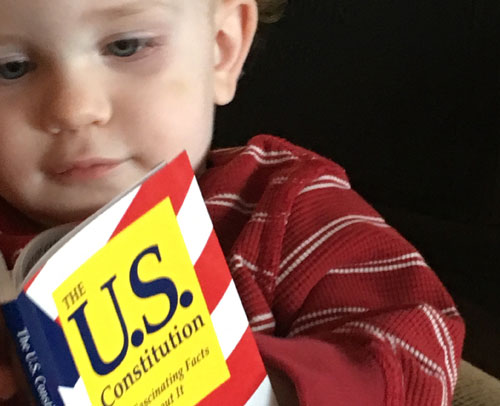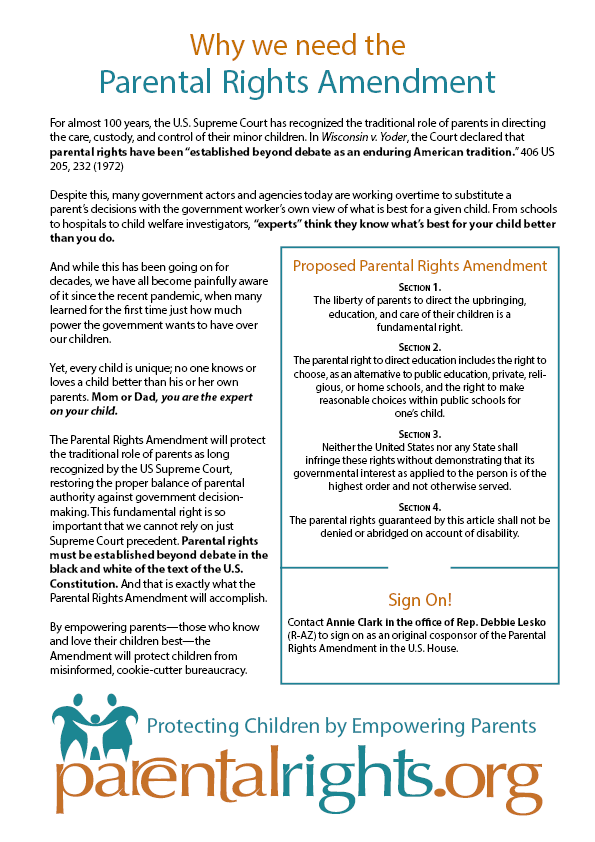SUMMARY: While parental rights do not include a right to commit child abuse or neglect, they are due the same high legal protection as other fundamental rights.
". . . demonstrating that its governmental interest as applied to the person. . ."
Because fundamental rights are so important to our freedom as Americans, the government must meet a heightened burden of proof in order to restrict those rights. In legal terms, the government's case begins with a positive demonstration – they must prove that there is a government interest in restricting the right, and that the government has a specific interest in restricting the right of the particular parents whose actions are being challenged.
In early 2006, the U.S. Supreme Court used this very language when talking about violations of religious liberty. According to the Court, the government must "demonstrate that the compelling interest test is satisfied through application of the challenged law 'to the person'--the particular claimant whose sincere exercise of religion is being substantially burdened."Gonzales v. O Centro Espirita Beneficente Uniao do Vegetal, 546 U.S. 418, 430-431 (2006). The text of this proposed parental rights amendment merely takes this well-established principle of law, and applies it explicitly to the fundamental right of parents.
". . . of the highest order and not otherwise served."
In 1972, the U.S. Supreme Court held that in order for the state of Wisconsin to override the rights of Amish parents, the government had to show that it had a compelling interest in requiring students to stay in school until age 16. Speaking of the right of the parents, the Court said that "the essence of all that has been said and written on the subject is that only those interests of the highest order and those not otherwise served can overbalance legitimate claims to the free exercise of religion." Wisconsin v. Yoder, 406 U.S. 205, 215 (1972) (emphasis added).
The Supreme Court has required the government to follow this standard whenever there is a violation of a fundamental right. Prominent examples of this are cases that deal with racial discrimination (see Adarand v. Pena, 515 U.S. 200, 227 (1995): "All racial classifications, imposed by whatever federal, state, or local governmental actor, must be analyzed by a reviewing court under strict scrutiny. . . . Such classifications are constitutional only if they are narrowly tailored measures that further compelling governmental interests"), restrictions on free speech (see Widmar v. Vincent, 254 U.S. 263, 269-270 (1982): Whenever discriminating against speech on the basis of its content, the government "must show that its regulation is necessary to serve a compelling state interest and that it is narrowly drawn to achieve that end"), and invidious discrimination against religion (see Church of the Lukumi Babalu Aye, Inc., v. Hialeah, 508 U.S. 520, 546 (1993): "To satisfy the commands of the First Amendment, a law restrictive of religious practice must advance 'interests of the highest order' and must be narrowly tailored in pursuit of those interests." In all these cases, the government must prove that it has a compelling interest, before the fundamental freedom at stake can be limited.


